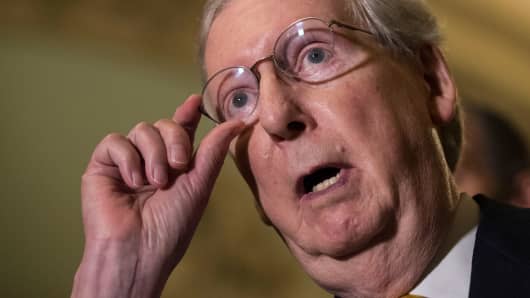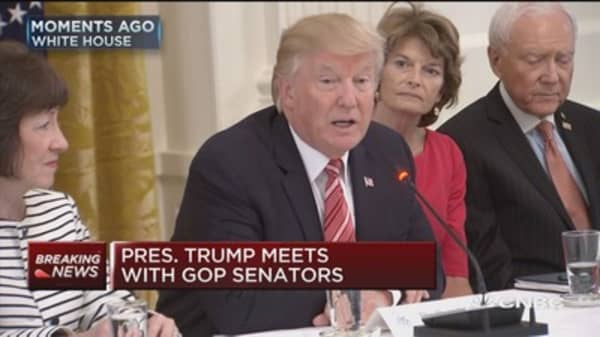Why is the Senate Republican leadership delaying the vote on its Obamacare replacement bill? Obviously, the easiest answer to that question is the GOP simply doesn't have the votes. But dig just a little bit deeper and we find the same problem that's been weighing this replacement effort down since this Congressional session began: fear.
As I have noted for months, the intense political fear of the number of people projected to lose health coverage has made any effort to reform Obamacare almost impossible for the Republicans to pass. I called those people the "Obamacare orphans."
When the latest CBO report came out Monday projecting that the number of Americans losing coverage under the Senate bill will be 22 million by 2026, it was obvious this measure was never going to even come up with for a vote until big changes were made first.
But the CBO report had an even more telling detail, and it proved that using the term "Obamacare orphans" wasn't very accurate. It said that almost 70 percent of that 22 million number would not come from people losing private health insurance coverage, but from the rolling back of the Medicaid expansion that went into effect under Obamacare.
In other words, 15 million people won't be losing "insurance" as we know it with premiums and deductibles to pay, but they'd be losing access to a government entitlement traditionally set aside for the poorest Americans. So the real fear is all about the blow back from "Medicaid orphans."
That, as they say, is a whole different ballgame.
Medicaid enrollment in the U.S. right now is no small issue. Thanks to the expansion, a whopping 74.5 million Americans are currently on Medicaid according to the latest government reports. That is almost double the 39 million Americans who were on Medicaid just as recently as 2007.





